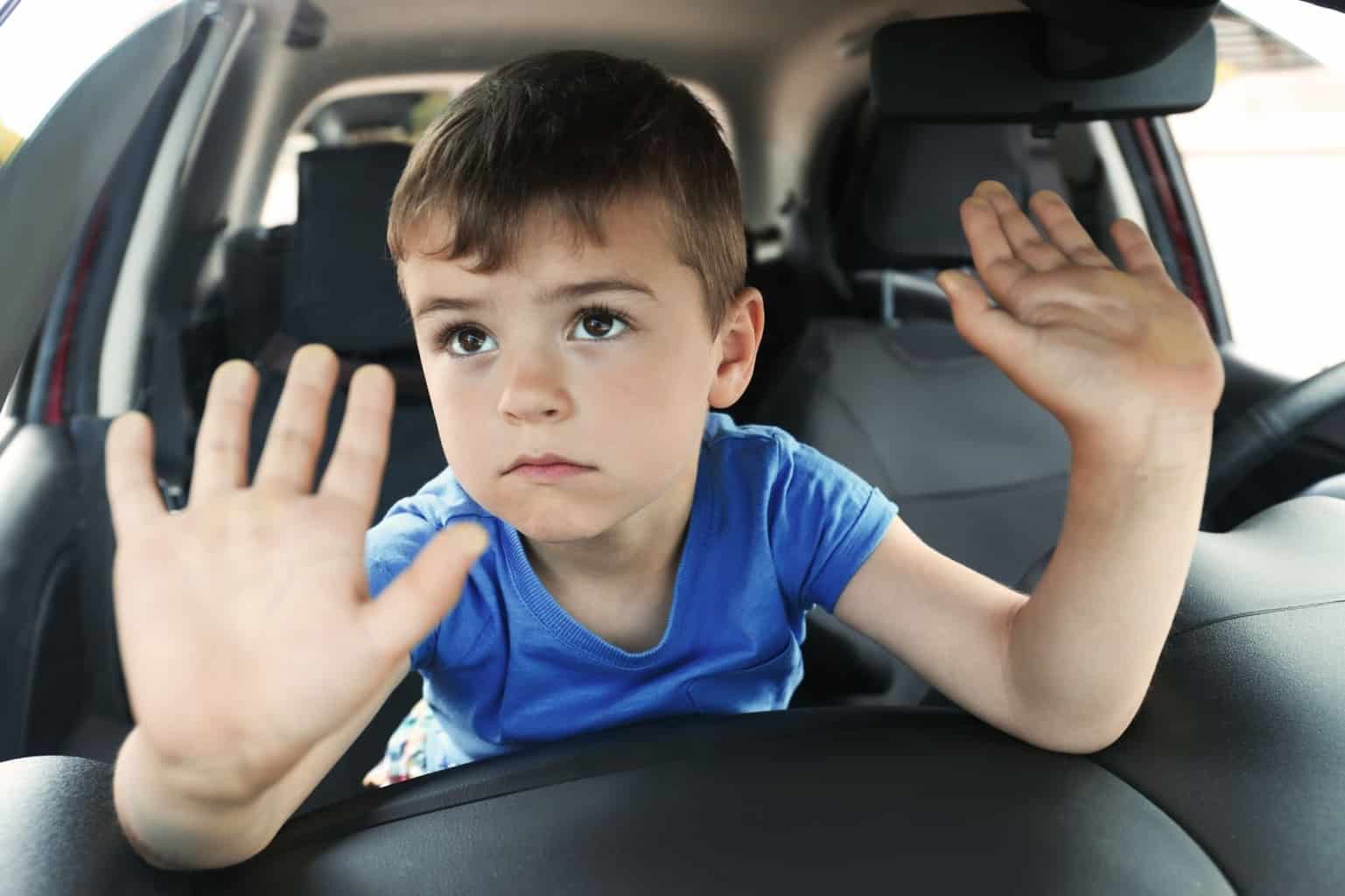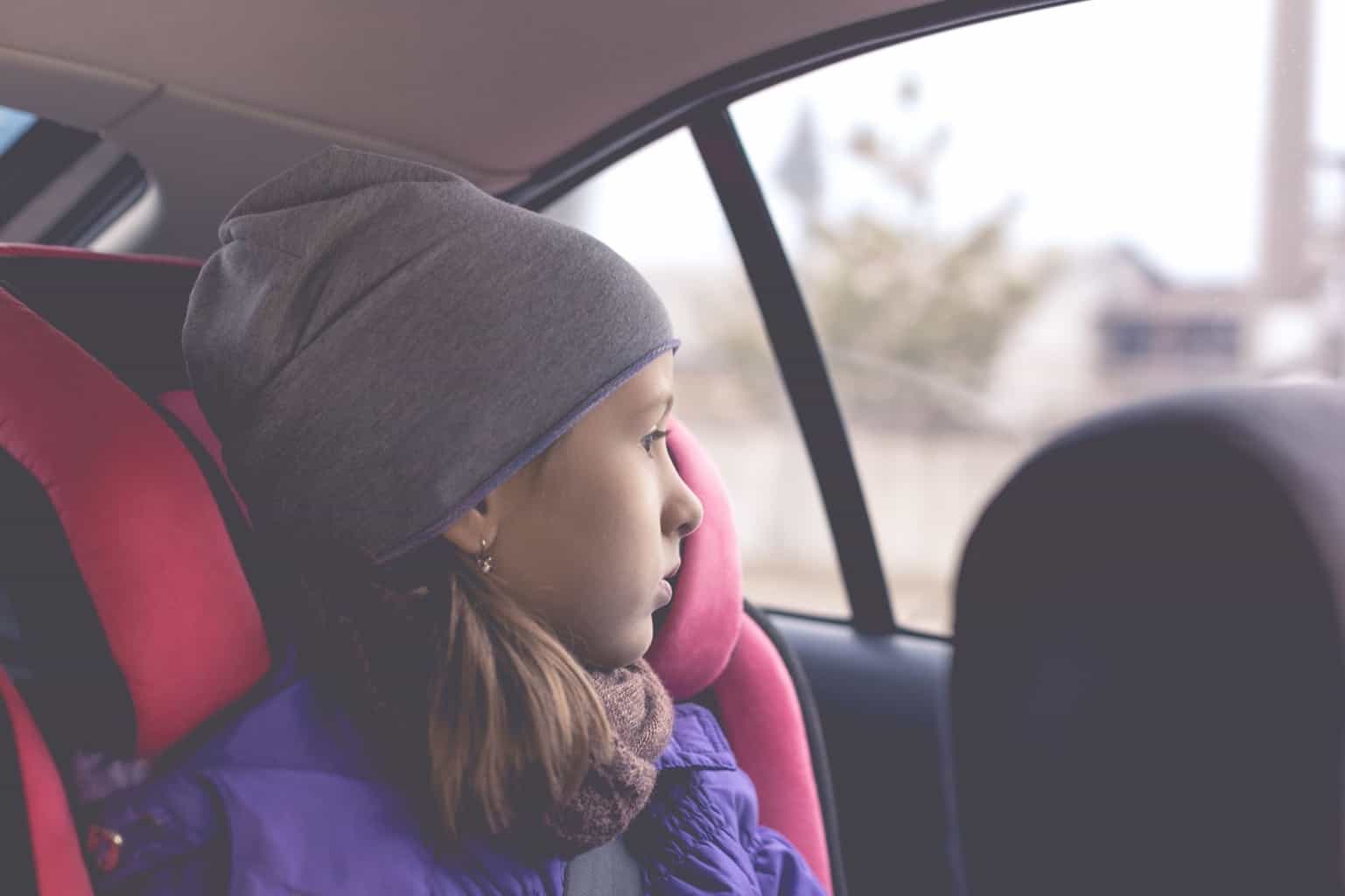PAL Safety: Locking Your Child in a Car

Accidentally locking your child in a vehicle can be one of the most traumatic and guilt-inducing experiences for a parent — but it happens more than you would think. Between work, errands, and tending for their kid’s needs, adults have a whirlwind of obligations to keep track of. So much so, it’s easy to lose track of the child themselves.
That said, being trapped in a car poses serious risks to young children, especially during hot summer months. Read on to mitigate the risk of locking your child in a car, and the immediate steps you should take if this unfortunate event happens to you.
Risks of Locking Children in Cars
You’re rushing to the grocery store — the eggs went bad again. Of course, there’s not much time. Allison has her dance recital at 7, after all, and the cupcakes for the should have been in the oven 30 minutes ago. Yes! A parking spot near the entrance opened up. Grabbing your purse and keys, you leap out of the car and rush into the store. It’s only when you’re on the dairy aisle that you stop dead in your tracks. Where’s Allison?
The vast majority of car-related deaths for children aren’t due to malicious intent or neglect: they happen when parents become absentminded due to adult demands, like in the hypothetical presented above. According to KidsandCars.org, an organization that tracks car-related child deaths, more than 900 children have died in hot cars since 1990. On average, 38 kids perish in cars yearly — that’s one every ninety days.
Though no parent desires to leave their child in a car unsupervised, leaving a young child in a car for 5 minutes or so seems like an innocent mistake, when it could in fact be a fatal one. The average ages of children who die from vehicular heatstroke range from 5 days — 14 years old, with more than half the deaths occurring in children under 2 years of age; a child’s body temperature rises 3 to 5 times faster than an adult’s. This means that when a kid is left in a hot car their temperature could shoot up rapidly, and they could die within minutes. Being in Texas, where summer temperatures can rise to the triple digits, it’s also important to note that heatstroke begins when the body’s core temperature reaches 104 degrees, while a core temp of 107 is lethal.

Avoiding a Crisis
Of course, the best way to handle a car lockout situation is to avoid it entirely. KidsandCars.org recommends taking the following precautions:
- Make a habit of opening the back door when parked (this can be aided by placing a valuable like a phone or purse in the backseat)
- Keep your car doors locked at all times so kids can’t enter on their own
- Never leave keys within a child’s reach
- Teach your kids to honk the car horn if they happen to be locked in

Your kid is stuck in your car. Here’s what to do.
If — heaven forbid — your child ever becomes stuck in a locked car due to a door jamb or another malfunction, or if you happen to notice a child trapped in a car push aside feelings of panic and follow these steps:
Call 911
Before anything else, get a 911 operator on the phone. Once you detail the situation, police and fire personnel will be immediately dispatched to your location. If your phone is missing, find someone nearby or run into a nearby store to get help.
Call a 24/7 Emergency Locksmith
While you wait for emergency personnel to arrive, call the nearest or the first emergency locksmith service you can think of. Often, emergency locksmiths will arrive before police or firemen, but even if they don’t, it never hurts to have a backup plan in a crisis.
Block Direct Sunlight
Using any resources at your disposal, such as blankets, towels, or tarps, try to cover the windows of the car in order to block out as much direct sunlight as you can. This will help prevent the car’s internal temperature from rising any further.
Keep Track of the Time
The locksmith or emergency personnel may want to know this information. Additionally, time can be a good indicator of your child’s internal temperature. If you think too much time is passing, it might be time to break in a window.
Remain Calm
Though this might seem impossible given the circumstances, it’s important that you extend yourself some grace: you’re only human after all, and none of this was intentional. Additionally, remaining calm will help you keep a clearer head, allowing you to make quick, rational decisions in this emergency situation.


